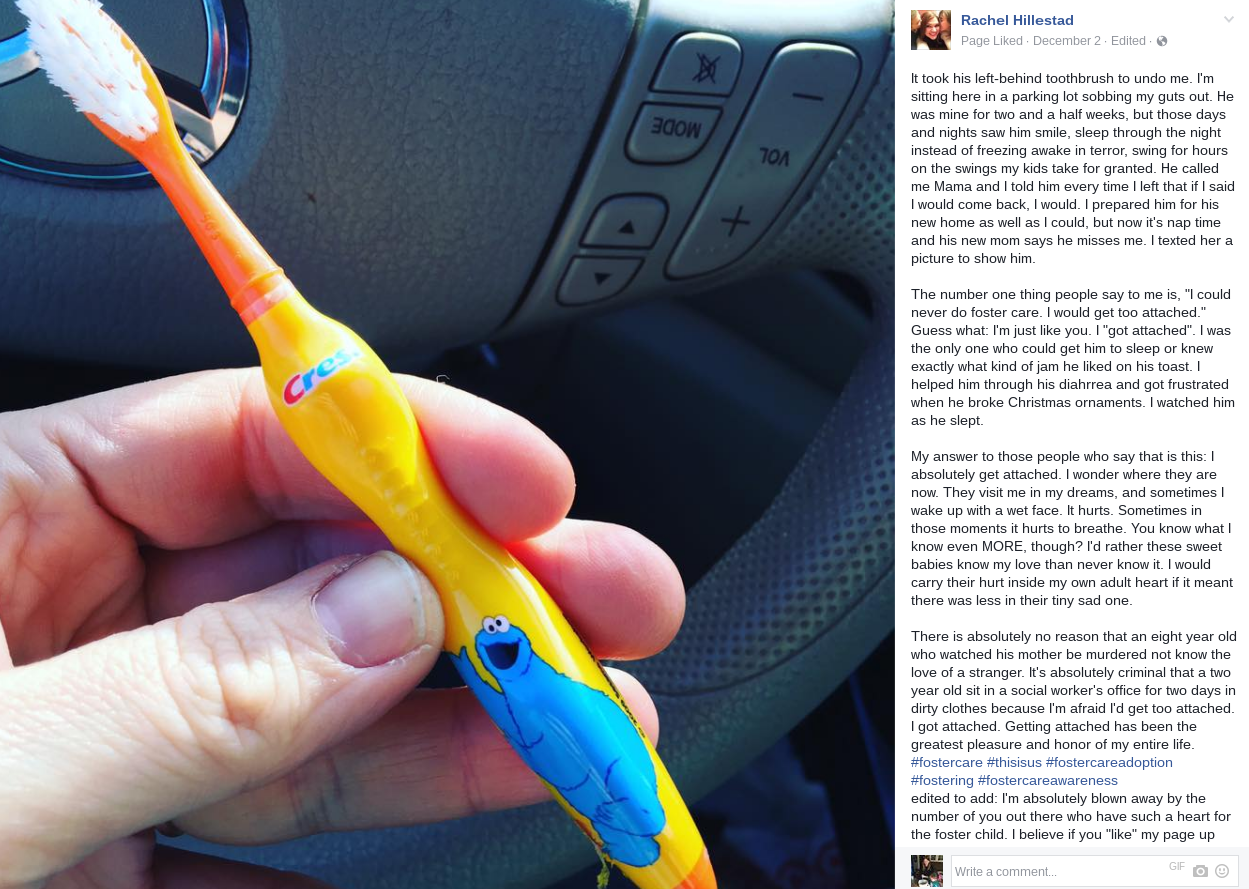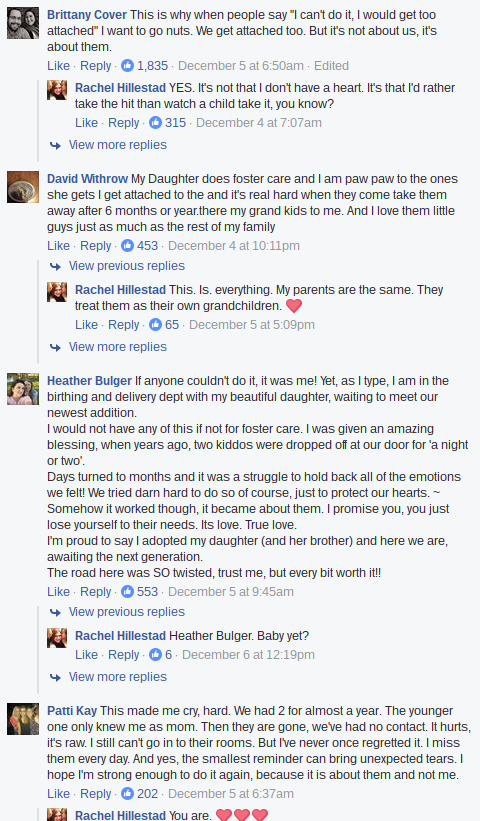This Woman's Facebook Post Nails a Bittersweet Reality About Fostering Children

By:
"I could never do foster care. I would get too attached."
For many prospective foster parents, this fear keeps them out of the foster system altogether. However, a Kansas woman's viral Facebook post about some of the bittersweet realities of foster care is trying to encourage people to overcome that fear.
On December 2, Rachel Hillestad posted a photo of a Cookie Monster toothbrush next to a long text post about fostering a little boy for two and a half weeks. Hillestad wrote that she misses him terribly now that he is with his "new mom," and that a lot of people have told her that they could never foster children because they would become "too attached." Hillestad, who has fostered children before, wrote in her post that getting "too attached" has its challenges, but that caring for children in the foster care system is "the greatest pleasure and honor of [her] entire life."
 Facebook - facebook.com
Facebook - facebook.com
Hillestad added that she would rather feel heartbroken after caring for a child in foster care than think about that child living without a loving adult like her:
"It's absolutely criminal that a two year old sit in a social worker's office for two days in dirty clothes because I'm afraid I'd get too attached."
Her full post is below:
The post has been shared more than 40,000 times and received a lot of positive feedback:
 Facebook - facebook.com
Facebook - facebook.com
If you're wondering why someone like Hillestad "can't just adopt" after fostering a child, it's because the adoption process can take a long a time. The Independent Adoption Center states that it can take up to 18 months to adopt an infant domestically in the U.S.
"The reason that a child wouldn't be available to be adopted after 2.5 weeks is quite simply this: the world of foster care quite often moves at a snail's pace," Hillestad told ATTN:. "Biological parents are given tasks on which to work and goals to complete in order to regain custody of their children. Here in Kansas, there is usually a period of time somewhere in the range of three to six months between court dates, time in which the parent(s) can work on attaining their goals (called the case plan). It is only in the instance that parents are not completing their case plan goals and other family cannot be located to care for the child that adoption by another party becomes an option."
She acknowledged that there are many misconceptions about foster care youth out there, and that these misconceptions can be very harmful to children in the system:
"The absolute biggest misconception is that all foster kids are crazy and want to burn your house down or torture your dog. At the end of the day, they're just kids who didn't get to make any choices about their life circumstance. They're just kids who need help. They're just kids like you and I were, or like our children are. In some ways, I think coming to that realization can make people uncomfortable. There's no longer a compelling reason not to get involved in helping to care for these kids. They're just kids."
Research has shown that foster homes can be beneficial for youth in the system.
An April 2010 study in the Archives of Pediatrics & Adolescent Medicine found that children in the foster care system were more likely to have normal levels for height and weight than children in orphanage systems. The children with average height levels also had better memory and learning capabilities.
Lead study author Dana E. Johnson told HealthDay News in April 2010 that both a good diet and a nurturing home can make all the difference for kids in the foster care system.
"Kids require a good diet, but they also require good nurture," Johnson told HealthDay News. "Without both those factors, kids will not do well."
